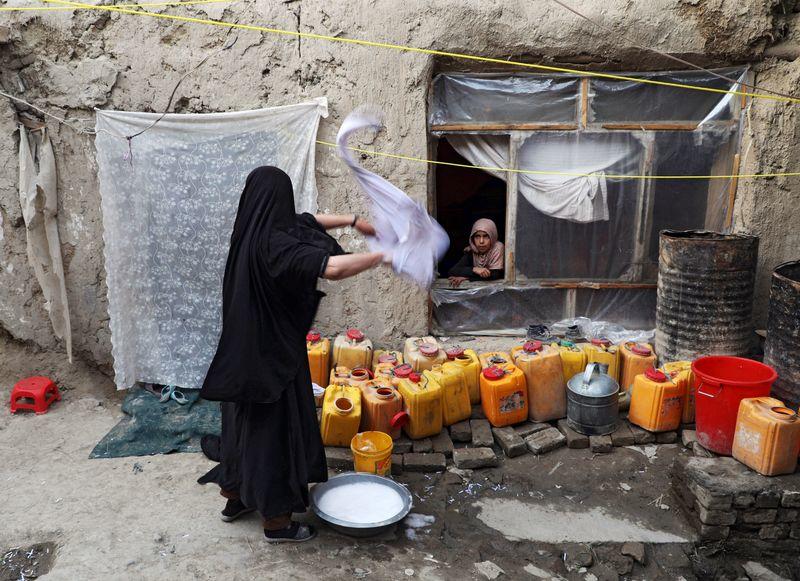Obama returns to US to face Congress battle over Syria
U.S. President Barack Obama returned to Washington Friday night after discussing Syria with Russian President Vladimir Putin at the Group of 20 summit.
Back in Washington, Obama will take his case for targeted military strikes on Damascus directly to the American people in a televised speech Tuesday. The president has argued that the Assad government has violated an international ban and committed horrendous murders of civilians, a crime that he says cannot go unanswered.
Earlier Friday, in St. Petersburg, Obama said any strike on Syria would be aimed at degrading the government\’s chemical weapons capacity. He said the world must continue working toward a transition, however, that can restore stability, prosperity, peace and legitimacy to Syria.
U.S. Ambassador to the United Nations Samantha Power said the U.S. administration plan for limited military action against Syria is the least the world powers should do.
Speaking in Washington Friday, she said Assad has an enormous stockpile of illegal chemical weapons, and recent activity has barely put a dent [made a mark] in his arsenal.
And, Power said, the international community has not put a dent in Assad\’s willingness to use chemical weapons.
U.S. officials say they have evidence that more than 1,400 people were killed by poison gas in an attack on August 21 in areas on the fringe of Damascus populated by supporters of the opposition.
President Obama met privately with Russian President Vladimir Putin in the midst of their dispute over how to respond to chemical weapons use in Syria.
In a Friday news conference, Obama said his conversation with Putin was "candid" and "constructive." But he added that he did not believe the talk would change Russia\’s opposition to any foreign military intervention in Syria.
Obama is trying to win international support for military action to punish Syria\’s government for an alleged chemical attack that killed more than 1,400 people in August. The U.S. president said he would address the American people about the issue Tuesday night and continue to work with Congress on a resolution authorizing military action.
The president said most world leaders attending a G20 dinner, and discussions that continued into the early morning hours Friday, were "comfortable" with the U.S. conclusion that the Syrian government was responsible for the attack. He said the leaders were "unanimous" in believing that international norms against the use of chemical weapons had to be maintained.
However, he said world powers were divided on launching military action without going through the United Nations Security Council.
Putin said any foreign strike on Syria would be "illegal." He said the chemical attack was a "provocation" by opposition fighters in Syria who are receiving foreign support.
Putin said leaders from India, Indonesia, South Africa and India were among those who spoke against any military intervention at Thursday\’s G20 dinner.
Putin said he feared that going into Syria would hurt the global economy by raising the price of energy and stifling global economic development.
"In such a difficult time in general for the world economy, to destabilize the situation in the Middle East is counterproductive. That\’s at a minimum, I will say it very diplomatically."
China and Russia, have voted down Security Council resolutions that would have pressured the government of Syrian President Bashar al-Assad.
Obama returns to Washington, on Friday, where he is seeking to convince U.S. lawmakers to authorize Syria military action.
A key U.S. Senate panel approved the plan Wednesday. But it now faces a tough vote in both houses of Congress, likely next week.
U.N. chief Ban Ki-moon on Friday warned world leaders against what he called "ill-considered" military strikes he said could worsen sectarian tensions in Syria.
Ban made his comments at a humanitarian meeting on the sidelines of the G20 summit. Warning against "further militarization of the conflict," Ban said military strikes could have "tragic consequences" and lead to further sectarian violence.
The secretary-general also raised Syria\’s crisis during talks with leaders from France, Germany and Turkey.
The U.S. State Department has issued traveling warning for neighboring Lebanon and Turkey. The U.S. ordered non-emergency personnel and family members to leave embassies in both countries and has also warned U.S. citizens to avoid travel to the countries.
U.S. Secretary of State John Kerry travels to Europe, on Friday, where he will continue the administration\’s efforts to get international support for possible action against Syria. His trip includes talks with Arab League and European Union officials.
Lakhdar Brahimi, the joint United Nations-Arab League envoy to Syria, has said that no state can "take the law into their own hands" and conduct military action against Syria without prior UN Security Council approval.
Brahimi was speaking on the sidelines of the G20 summit in St Petersburg on Friday, after meetings with foreign ministers including Russia\’s Sergei Lavrov, who said many nations realise that striking Syria without Security Council backing would scuttle the chances of reaching a political solution.
Lavrov said that "a clear understanding is taking shape among many responsible states that the use of force, bypassing the Security Council, would essentially put an end to efforts to reach a political settlement and convene an international conference".
The remarks came as leaders at the summit continue to be sharply divided on the issue of whether to conduct military strikes against Syria after the alleged use of chemical weapons in Damascus suburbs by Syrian regime forces on August 21.
More than 100,000 people have been killed in the conflict, and the UN refugee agency says about one third of Syria\’s pre-war population of 20.8 million have fled their homes, either to other countries or safer areas within Syria.
Source: Agencies
[do_widget_area inner_adsbar]










